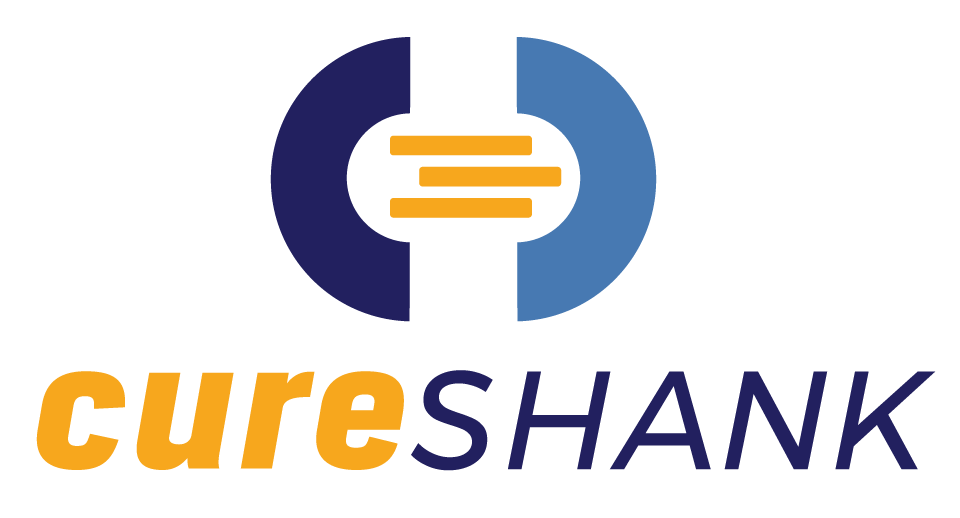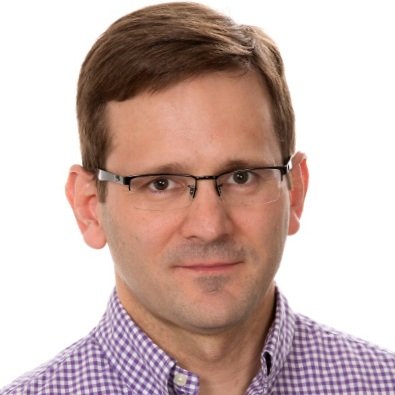STRATEGIC & SCIENTIFIC ADVISORS
Brett S. Abrahams
Dr. Abrahams is a neuroscientist, geneticist, and drug hunter with experience developing therapeutics and building startups. He is the founder and President of Heppinn Biosciences, a consultancy practice launched to support venture investors, foundations, and biotech companies diligence opportunities, develop drugs, and start biotech companies. He’s also an Advisory Board Member for Autism Speaks, FAST (Angelman Syndrome), and Accelerator Life Science Partners.
Prior to launching Heppinn, Dr. Abrahams served as Executive Vice President of Research and Development of Magnolia Neurosciences. The company was founded to develop novel therapeutics for neurodegenerative disorders and built out around investment from Arch, Pfizer Ventures, Eli Lilly, and others. Dr. Abrahams joined Magnolia from Ovid Therapeutics, leaving as Senior Director and Head of Pre-Clinical Biology. While there, he helped to move multiple autism and epilepsy-related assets into the clinic and was part of the team that showed clinical benefit of Gaboxadol (OV101) in Angelman Syndrome and Soticlestat (TAK935) in Dravet Syndrome.
Prior to this, Dr. Abrahams was full-time faculty with an independent laboratory at the Albert Einstein College of Medicine, where he retains an adjunct appointment. His lab applied genomic strategies to identify novel disease genes and then studied the molecular, cellular, and behavioral consequences of identified variants in disease models and patients. He was also closely involved in the development of the Simons Foundation’s SFARI Gene, an autism-focused knowledge base for researchers and clinicians. His research, published in numerous high impact journals including Cell, New England Journal of Medicine, Nature, and Science Translational Medicine, has been cited more than 10,000 times.
Jamil M. Beg
Jamil M. Beg joined 5AM Ventures in 2017 as a Principal and was promoted to Partner in 2020. Prior to 5AM, Mr. Beg was at Sage Therapeutics (NASDAQ: SAGE) where he contributed to building the company through business development, corporate strategy, medical affairs, health economics & outcomes research and commercialization roles. Previously, Mr. Beg was an investment professional at Quaker Partners and contributed to investments in the firm’s portfolio companies including EKR Therapeutics (acquired by Cornerstone Therapeutics), Transave Inhalation Therapeutics (acquired by Insmed), NuPathe (NASDAQ: PATH, acquired by Teva) and Cempra (NASDAQ: CEMP). Mr. Beg started his career at Cambridge Pharma Consultancy (acquired by IMS Health) with a focus on pricing, market access and health economics outcomes research strategies for the biopharma industry. Mr. Beg earned his B.S.E. in Bioengineering and Master of Biotechnology degrees from the University of Pennsylvania. He earned his M.B.A. in Healthcare Management and Entrepreneurial Management from The Wharton School of the University of Pennsylvania where he was a recipient of the Henry J. Kaiser Family Foundation Merit Award.
Federico Bolognani
Federico Bolognani has over 20 years of experience in translational neuroscience research in academia, pharmaceutical and the biotechnology industries. Federico is Vice President and Head of Clinical Science at Axial Biotherapeutics. Most recently, Federico served as the Vice President and Head of Clinical Science at VectivBio in Basel, Switzerland. Prior to VectivBio AG, Dr. Bolognani was VP and Head of Clinical Science at Therachon AG, which was acquired by Pfizer in 2019. Prior to Therachon, Dr. Bolognani held various senior-level positions at Roche. As Translation Medicine Leader, Dr. Bolognani led several of Roche’s programs in neuroscience, including the successful Phase 2 Balovaptan program in ASD, which was granted Breakthrough Designation in 2018. Dr. Bolognani received his Ph.D. and M.D. from Universidad Nacional de La Pata, Argentina and has an extensive scientific publication record in translational neuroscience research.
TOM FRAZIER
Dr. Frazier is a licensed clinical psychologist who received his Ph.D. from Case Western Reserve University in 2004. He joined Cleveland Clinic in 2006 and from 2013-2017 was the director of the Cleveland Clinic Center for Autism and the Lerner School providing assessment and behavioral intervention to children and young adults. In 2017, he was hired as the Chief Science Officer at Autism Speaks and is currently a member of the Autism Speaks national board and chair of the medical and science advisory committee. He is also a Professor of Psychology at John Carroll University and a Research Professor in Pediatrics and Psychiatry at SUNY-Upstate.
Over the last decade, Dr. Frazier has maintained active clinical research programs focused on the evaluation and treatment of autism and related neurodevelopmental and neurogenetic syndromes. He has published more than 150 scientific papers and his recent work has focused on measuring key neurobehavioral processes relevant to early identification and monitoring response to intervention.
Eric S. Hoffman
Eric brings a blend of scientific, financial and international experience across a variety of indications to his work. He has more than 18 years' experience in the biotechnology industry, most recently acting as Senior Vice President of Business Development for radiotheranostics oncology company Fusion Pharmaceuticals responsible for business development and alliance management.Prior to Fusion, Eric was Chief Business Officer at startup Vicarius Pharma, where he led successful business development efforts to in-license European commercialization rights for oncology and neurology products. Prior to Vicarius, he was Chief Business Officer of T cell vaccine company Genocea Biosciences where he led business development, alliance management and commercial operations.
Before Genocea, Eric was Vice President of Corporate and Business Development at antiviral company Idenix Pharmaceuticals until the acquisition by Merck & Co. He was previously Director of Corporate and Business development and Director of Investor Relations at neurology and oncology company Biogen Idec. He also worked for more than five years on Wall Street in biotechnology equity research at JPMorgan and Bear Stearns. Eric was also a post-doctoral research associate in the Department of Immunobiology at King's College in London, after receiving his PhD in molecular, cellular and developmental biology with a focus on T cell development from Yale University.
Eric has four children and enjoys spending time with them, doing everything from attending their track and gymnastic meets, watching baseball, downhill skiing, playing board games or going to the beach with them.
Shafali Jeste
A Board-certified pediatric neurologist, Dr. Jeste focuses on developing methods to improve precision in the diagnosis and treatment of neurodevelopmental disorders. She is a prolific researcher whose lab has defined early predictors of autism in at-risk infants, and she has authored and contributed to more than 200 journal papers, editorials, chapters and abstracts. In 2019, she was awarded the Presidential Early Career Award for Scientists and Engineers for her research in early predictors and intervention for genetic neurodevelopmental disorders.
Dr. Jeste holds several national and international leadership positions including the Board of Directors of the American Brain Foundation, Board of Directors of the National Organization for Rare Disorders and the Board of Directors of the International Society for Autism Research. She also is Co-Founder of ACEing Autism, a national nonprofit that uses tennis to help children with autism connect, grow and develop.
Dr. Jeste earned her bachelor’s degree in philosophy from Yale University before obtaining her medical degree from Harvard Medical School. She completed an internship, residency and a fellowship in behavioral child neurology at Boston Children’s Hospital.
Dr. Jeste joined Children’s Hospital Los Angeles in 2021 as Chief of the Division of Neurology. In this role, she oversees clinical care delivery and quality, strategic planning, recruitment and program development.
Walter Kowtoniuk
Walt is the father of two and spends his days playing with his kids, teaching them about the world, and having fun watching them grow up. Walt is also passionate about making a difference for patients. He spends his days focused on genetics and genomics and the insights they bring into disease biology. Walt works where science meets business and strategy, enabling insights from the lab to become the next generation of medicines that can change lives. He is enthusiastic about launching companies with emphatic, truly patient-centric cultures that effectively and efficiently execute drug discovery. He places priority on taking the time to listen to the patients whom we endeavor to help, recognizing that the value we aim to create is defined by the magnitude of the difference we can make in their lives.
Morgan Sheng
Morgan Sheng is a core institute member of the Broad Institute of MIT and Harvard, where he serves as co-director of the Broad’s Stanley Center for Psychiatric Research. He is also a professor of neuroscience in MIT’s Department of Brain and Cognitive Sciences, and an affiliate of both the McGovern Institute for Brain Research and the Picower Institute for Learning and Memory.
From 2001 to 2008, Sheng was the Menicon Professor of Neuroscience at MIT, as well as an investigator of the Howard Hughes Medical Institute. From 2008 to 2019, Sheng was vice-president of neuroscience at Genentech, a leading biotech company, where he led research and drug discovery efforts for major diseases of the nervous system. His research at Genentech focused on human genetics and pathogenic mechanisms of neurodegenerative disease, particularly Alzheimer’s and Parkinson’s diseases.
Sheng is a fellow of the Royal Society (UK), a fellow of the Academy of Medical Sciences (UK), a fellow of the American Association for the Advancement of Science, and honorary fellow of Corpus Christi College, Oxford. He has served on the editorial boards of Neuron, Journal of Neuroscience, and Current Opinions in Neurobiology. A past recipient of the Fondation Ipsen Prize in Neuronal Plasticity and the Young Investigator Award of the Society for Neuroscience, Sheng is author of more than 200 peer-reviewed publications focused on the molecular mechanisms underlying the structure and plasticity of synapses and the molecular-cell biology of neurodegeneration.
Sheng received a B.A. (1st class honors) from Oxford University and obtained his medical degree and training at London University. His Ph.D. thesis was completed at Harvard Medical School in the lab of Michael Greenberg. Following postdoctoral research in the lab of Lily Jan at the University of California, San Francisco, Sheng served as a faculty member in the Department of Neurobiology at Massachusetts General Hospital and Harvard Medical School (1994-2001) before joining MIT (2001-2008).








